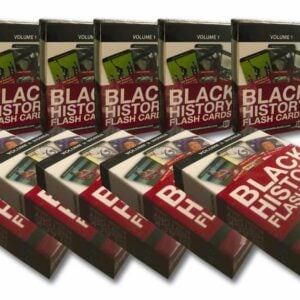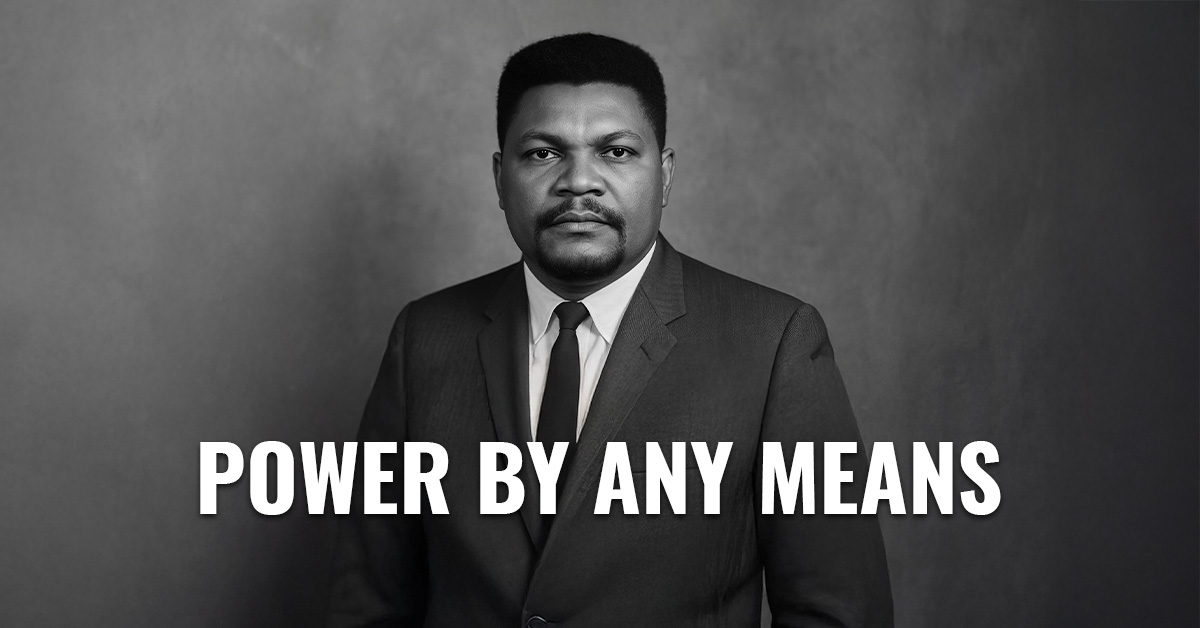What does it mean to love your people enough to protect them—by any means necessary?
For Robert F. Williams, that question wasn’t theoretical. It was daily life.
In the Jim Crow South, Black families lived under the constant threat of violence.
The police weren’t protectors. The courts weren’t defenders. The law itself was the weapon.
Williams saw his hometown—Monroe, North Carolina—bleeding from racial terror. Klansmen rode freely, burning crosses and shooting into Black neighborhoods. Deputies looked the other way. Newspapers mocked the dead. The NAACP, at the time, promoted strict nonviolence. But Williams believed survival demanded something more than hope.
He believed in self-respect through self-defense.
That belief would make him one of the most radical, misunderstood, and ultimately visionary freedom fighters of the 20th century.
Early Life: Born into Resistance
Robert Franklin Williams was born on February 26, 1925, in Monroe, a small town in the heart of North Carolina’s racial divide. His grandmother, Ellen Isabel Williams, was his first teacher in resistance. She had lived through Reconstruction and Jim Crow and kept a rifle above her door—not out of hatred, but necessity.
From a young age, Robert learned that dignity wasn’t something given. It was something defended.
As a teenager, he witnessed the brutal beating of a Black woman by a white man. When she screamed for help, no one came. That moment carved itself into his memory—the injustice, the silence, the indifference. He swore he would never again stand idle in the face of abuse.
After serving in the U.S. Marines during World War II, Williams returned home expecting at least a measure of respect for his service. Instead, he found the same racial terror waiting for him. Black veterans, still in uniform, were lynched across the South. Monroe was no exception.
The war had taught him discipline and tactics. Now, he would use those lessons in a different kind of battlefield—the streets of America.
Monroe: A Town War
In the late 1950s, Williams became president of the Monroe chapter of the NAACP. Unlike most branches, his included both working-class laborers and veterans who had seen the world beyond the South. Together, they decided the time for pleading was over.
Monroe’s Black community lived on the edge—literally. Their neighborhoods bordered white areas patrolled by the Ku Klux Klan. Every night, the Klan drove through, shooting into homes, dragging men into the woods.
The police refused to investigate. The newspapers called the victims “troublemakers.”
Williams organized his neighbors into an armed self-defense group. They weren’t vigilantes; they were guardians. They built watch posts, trained responsibly, and took shifts protecting the community. Children slept better. The night air felt different—safer.
His philosophy was simple:
“Nonviolence is fine as long as it works. But when the dogs are biting and the bullets are flying, every man has a right to defend his home.”
The Spark: The “Kissing Case”
In 1958, two young Black boys—ages seven and nine—were arrested in Monroe for playing with a white girl who kissed one of them on the cheek. The boys were charged with molestation and sentenced to reform school until age twenty-one.
The world erupted in outrage. The “Kissing Case” became an international scandal, exposing the deep cruelty of American racism. Williams led the charge to free the boys, gaining global attention—but also painting a target on his back.
White supremacists vowed revenge. The Klan surrounded his house one night, weapons drawn. But this time, they didn’t expect return fire. Williams and his men stood their ground. The attackers scattered into the dark.
For the first time in Monroe’s history, the Klan retreated.
Negroes With Guns: The Birth of a Movement
Williams’ stand in Monroe didn’t just protect his neighbors—it ignited a national debate about the meaning of freedom.
In 1962, after being falsely accused of kidnapping during racial unrest, Williams fled the U.S. with his wife, Mabel. They found refuge in Cuba, where they were welcomed by Fidel Castro’s government as political exiles.
There, Williams published his manifesto:
Negroes with Guns, a slim but explosive book that became a bible of self-defense for the Black Power movement.
In it, he wrote:
“The Afro-American people must be prepared to defend themselves against the violence of racists who have no respect for law or humanity.”
He didn’t reject nonviolence—he contextualized it. He understood that freedom movements need multiple tactics. One hand marches. The other defends. Both work toward liberation.
The book circulated quietly at first, but its ideas traveled far. Malcolm X read it. So did Huey P. Newton and Bobby Seale, founders of the Black Panther Party. The Panthers’ community patrols, breakfast programs, and armed defense philosophy echoed Williams’ model in Monroe.
Williams had lit a torch that others would carry.
Exile and Global Vision
From Cuba, Williams hosted a revolutionary radio show called Radio Free Dixie.
Every week, his voice reached listeners across the Americas, Africa, and Europe. He played jazz and gospel, read poetry, and reported on civil rights abuses in the United States. His message was sharp and fearless: the world needed to see that America’s promise of freedom was still a lie for millions of Black people.
Later, Williams moved to China, where he met with leaders like Mao Zedong and Zhou Enlai. He studied revolutionary tactics and international solidarity, drawing parallels between the struggles of Africans, Asians, and Latin Americans.
To him, the fight for Black liberation was part of a global uprising against imperialism and white supremacy.
Williams understood something many Americans couldn’t see yet:
“Our problem is not only American—it is human. The same system that enslaved us exploits others around the world.”
When he finally returned to the U.S. in the late 1960s, he came home to a changed country—one burning with the very fire he had helped spark.
Power, Principle, and the Price of Dissent
Robert F. Williams was not universally celebrated in his time.
To the establishment, he was dangerous—a man advocating for Black people to arm themselves in a society that feared their very existence. Even within the civil rights movement, many saw him as too radical.
But Williams’ message was never about violence for violence’s sake. It was about agency—the right to refuse terror. The right to exist without permission.
He once said:
“When a man’s family is threatened, when his home is attacked, he has a duty to defend them. It is not hate. It is humanity.”
This philosophy forced uncomfortable questions:
- What does protection look like when laws don’t protect you?
- Who gets to define “justice”?
- And what is the moral limit of patience?
Williams lived those questions with clarity and consequence.
He paid a high price—years of exile, slander, and erasure—but his legacy lives in every movement that demands safety and dignity for Black lives today.
The Legacy: From the Rifle Club to the Revolution
The seeds Williams planted took root across generations.
- The Deacons for Defense and Justice, a group of armed Black men in Louisiana, directly modeled their organization after Williams’ Monroe defense patrols. They protected civil rights workers when police wouldn’t.
- The Black Panther Party built community defense programs and political education campaigns grounded in his philosophy of self-determination.
- Modern movements like Black Lives Matter continue his global vision—linking local struggles for justice to international human rights campaigns.
In popular culture, his influence resounds through artists who turn pain into power:
- Public Enemy’s “Fight the Power.”
- Dead Prez’s “I’m an African.”
- Kendrick Lamar’s “Alright.”
All carry the spirit of Williams’ defiance—the insistence that survival itself is a revolutionary act.
The Global Echo: Defending the Village
Robert F. Williams belongs to a long lineage of protectors across the African diaspora.
In Jamaica, Maroons armed themselves to safeguard their mountain villages from British troops.
In Ghana, Asante warriors defended their people from colonizers.
In South Africa, Umkhonto we Sizwe, the armed wing of the ANC, rose when peaceful protest was met with massacre.
Everywhere Black people have been oppressed, we have also organized, armed, and resisted.
Williams’ story is not an outlier—it’s a continuation.
The Human Side: Mabel Williams and the Power of Partnership
No story of Robert F. Williams is complete without Mabel Williams, his wife and comrade in arms.
She stood beside him through exile, raised their children under threat, and co-hosted Radio Free Dixie.
Her calm strength gave balance to his fire.
Mabel’s message was clear: defense was not only for men.
Women, too, had the right—and responsibility—to protect their communities.
In Monroe, women took rifle training. They stood watch. They made freedom a family affair.
The Williamses remind us that revolution isn’t only waged in the streets—it’s also built in kitchens, classrooms, and hearts that refuse to surrender.
Why His Story Matters Now
Today, the world feels different—and yet the same.
We still face racial violence, police brutality, and a system that too often shields power rather than people. The language of “protection” has been twisted to justify harm.
Williams’ story calls us back to truth:
Protection is love in action.
Courage is care made visible.
And justice must be defended—not begged for.
When we honor Robert F. Williams, we reclaim the right to define our own safety, to decide what liberation looks like for us, and to remember that freedom has never been a gift—it has always been a demand.
Reflection & Table Talk
How do we balance courage and compassion when facing harm?
What does real protection look like in your family or community?
What does “power by any means” mean to you in your own life?
Discuss these questions at your dinner table, in classrooms, in barbershops, and in community centers.
Let his story move you from awareness to action.
Keep the Flame Alive
Robert F. Williams didn’t wait for permission to protect his people—he acted.
Now it’s our turn.
💡 Explore his legacy with:
👉🏾 Real Talk: Hip Hop Edition or You Better Not Say — conversation games that keep the fire of Black truth alive.
🎧 Read Negroes with Guns or listen to Radio Free Dixie archives to hear Williams’ words for yourself.
📚 Dive into Black History Flashcards Vol. 4: Pre-1492 to connect his courage to centuries of African and diasporic resistance.
Because power isn’t just what we hold in our hands—it’s what we build in our hearts.
#PowerByAnyMeans #ReclaimTheFlame #SankofaUniverse
💬 Let’s Talk:
Had you heard of Queen Nanny before this? What lessons can we take from her leadership today?
👇 Drop a comment and share this with someone who needs to know our real history.



















0 Comments